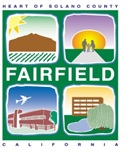| | | | | | | | 
AGENDA REPORT
|
| | | | | | | | DATE:
| October 20, 2020
| TO:
| Mayor and City Council
| FROM:
| Stefan T. Chatwin, City Manager 
| | SUBJECT: | Public Hearing;
and First Reading and Introduction of Ordinance 2020-20 of the City Council of the City of Fairfield Amending Various Sections of Chapter 25, Article I of the Fairfield City Code (also known as the Zoning Ordinance of the City of Fairfield) Amending the Definition of “Boarding House,” Amending the Development Standards for Boarding Houses, Amending the Land Use Tables Permitting “Boarding House, Small” in all Residential Zoning Districts, Conditionally Permitting “Boarding House, Large” in the RM, RH, and RVH Zoning Districts, Conditionally Permitting “Boarding Houses, Small” and “Boarding Houses, Large” in the CN, CO, CT, CC, and CM Zoning Districts, Permitting “Boarding Houses, Small” in the HO, HR, and HWT Zoning Districts, and Permitting “Boarding Houses, Large” in the HWT and HTD Zoning Districts |
|
| | | | | | | | | RECOMMENDED ACTION | | Hold public hearing; waive full reading, read by title only; and introduce ordinance for first reading. |
|
| | | | | | | | | STATEMENT OF ISSUE | Boarding houses are a form of housing in which tenants, be they individuals or households, share a single residential unit, typically a single-family home or small apartment building. Boarding houses were traditionally a type of communal housing suitable for a variety of households and individuals who could not afford or chose not to rent traditional apartments or single-family homes
Fairfield’s Zoning regulations are very restrictive regarding boarding houses. Boarding houses are limited to higher density zones and require a Conditional Use Permit (“CUP”). Currently, Boarding Houses are not permitted in Fairfield’s traditional single-family zoning districts.
Despite their unpermitted status, it is likely that boarding houses are operating throughout the City with no formal approvals, registration, or even City knowledge. In some cases, public and nonprofit funding is available to operators of such boarding houses. City approvals cannot be granted under the current Zoning Ordinance in most cases, which leads to a conflict between public goals of providing a variety of affordable housing options, including transitional and supportive housing, and current regulations. In addition, in areas where boarding houses may be allowed under the current zoning, the requirement to obtain a CUP introduces a costly barrier to establishing a legal boarding house. Finally, enforcing code compliance complaints against unpermitted boarding houses can be difficult, which leads to frustration among homeowners in our residential neighborhoods who have experienced difficulties with unpermitted, poorly managed boarding houses.
Staff proposes amendments to the Zoning Ordinance to reconcile the need for affordable and special needs housing with neighborhood concerns, while creating a path to legalize existing unpermitted boarding houses. |
|
| | | | | | | | | DISCUSSION | The main objectives of the proposed Ordinance include:
- Bring existing non-permitted boarding houses into legal status.
- Provide clear differentiation between smaller boarding houses that can be integrated into traditional single-family neighborhoods with lesser impacts and larger homes more suitable for commercial or higher density neighborhoods.
- Identify appropriate zoning districts for each class of boarding house.
- Develop clear and defensible objective standards, including location and concentration, parking, and design.
- Identify a ministerial process for approving smaller boarding houses while retaining the Conditional Use Permit process for larger boarding houses.
The proposed Ordinance expands the definition of “Boarding House” to create two classes of Boarding Houses, as follows:
- Small: 3-6 separate households and payment arrangements.
- Large: 7 or more separate households and payment arrangements.
The proposed Ordinance also implements new requirements that:
- Boarding houses must meet all life safety and building code requirements.
- Boarding houses must be at least 300 feet apart and cannot be located on the same block.
- Boarding houses must comply with parking requirements of one space per household unless a waiver is granted by the Community Development Director, which may be granted if the residents of a boarding house do not own a car or a drivers’ license.
Staff recommends a Zoning Clearance for Small Boarding Houses in zoning districts where permitted. For small boarding houses (six or fewer tenancies), the Zoning Clearance is a ministerial approval process, with no further Planning review required. For Large Boarding Houses, the Ordinance requires a Zoning Clearance or a Conditional Use Permit depending on the specific zone. Note that Zoning Clearance does not replace conformance with City and State housing, building, and fire code requirements.
Environmental Review
Staff has determined that the proposed amendments to the text of the Zoning Ordinance are ministerial and exempt from further CEQA review under CEQA Guidelines Section 15305, which categorically exempts Minor Alterations in Land Use Limitations; Section 15301, which categorically exempts leasing of existing facilities; and under Section 15061(b)(3), the general rule that CEQA only applies to projects which have the potential for causing a significant effect on the environment.
|
|
| | | | | | | | | FINANCIAL IMPACT | | There are limited direct financial impacts to the City. Applicants for permits will continue to pay Building Permit application fees and, where appropriate, Planning Permit fees. |
|
| | | | | | | | | CITY COUNCIL WORKPLAN | Community Safety
| Community Infrastructure | Quality of Life | | Financial and Operational Sustainability | Economic Development | Travis Air Force Base |
| City Council Goal this item supports:
Community Safety, Quality of Life |
|
| | | | | | | | | Project: | One-time item not recommended for including in the Workplan
|
|
| | | | | | | | | PUBLIC CONTACT/ADVISORY BODY RECOMMENDATION | At its September 23, 2020 meeting, the Planning Commission held a public hearing that was duly noticed in the Daily Republic on September 13, 2020. At said meeting, the Planning Commission adopted Resolution No. 2020-16 recommending Council adopt the Ordinance.
Some members of the Planning Commission expressed concern that the definition of Boarding House is tied to separate households, not individuals. Staff explained that this was the basis for describing each lessee in our existing boarding house regulations, based on advice of the City Attorney to comply with State law. State law limits our ability to regulate the makeup of the person or persons covered by an individual lease. Moreover, the right to privacy in the California Constitution prohibits zoning ordinances from defining the number of people that constitute a “family,” and local occupancy limits are generally preempted unless reasonably necessary because of local climatic, geological, or topographical conditions.
Occupancy limits and other requirements of the California building and fire codes must still be met, and this should reduce the danger of overcrowding. Therefore, staff did not recommend that the basis be changed from “households” to individuals. The Planning Commission’s recommendation to the City Council concurs that the definition for small and large Boarding Houses should be based on households not individuals.
|
|
| | | | | | | | | ALTERNATIVE ACTION | | The City Council may choose to not adopt the Ordinance or require amendments. |
|
| | | | | | | | | STAFF CONTACT | Brian Miller, Associate Planner
(707) 428-7446
bkmiller@fairfield.ca.gov
|
|
| | | | | | | | | COORDINATED WITH | City Attorney's Office, City Manager's Office, Fire Department
|
|
| REVIEWERS: | | Reviewer | Action | Date | | Answerer | Approved | 10/5/2020 - 6:38 PM | | Feinstein, David | Approved | 10/5/2020 - 8:00 PM | | Gassaway, David | Approved | 10/5/2020 - 8:18 PM | | Alexander, Amber | Approved | 10/7/2020 - 12:58 PM | | Alexander, Amber | Approved | 10/9/2020 - 12:39 PM |
|
|